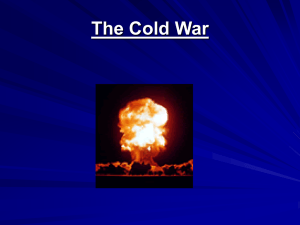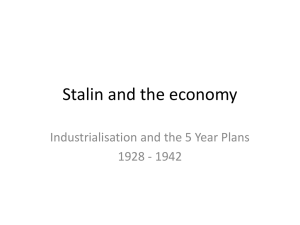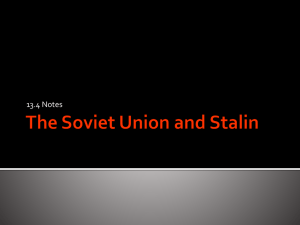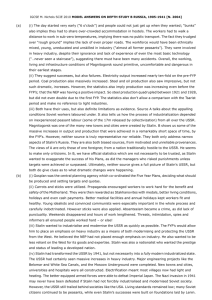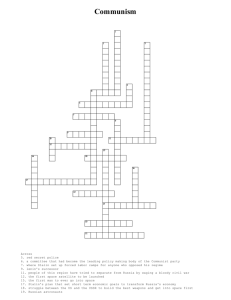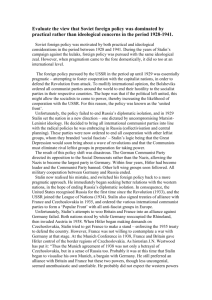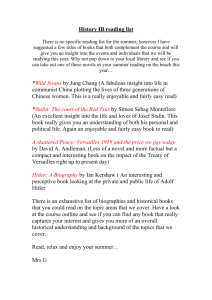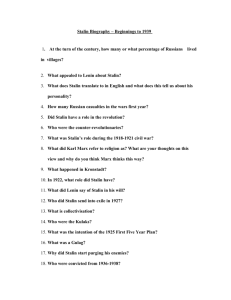Why did Stalin Agree to the Nazi-Soviet Pact
advertisement
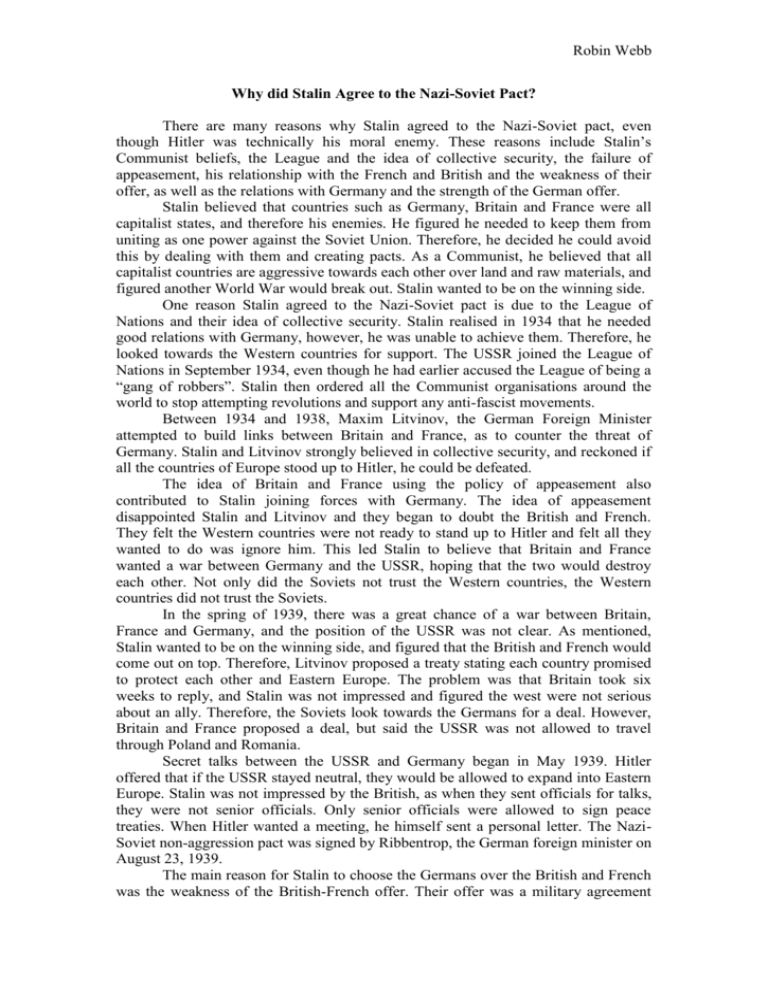
Robin Webb Why did Stalin Agree to the Nazi-Soviet Pact? There are many reasons why Stalin agreed to the Nazi-Soviet pact, even though Hitler was technically his moral enemy. These reasons include Stalin’s Communist beliefs, the League and the idea of collective security, the failure of appeasement, his relationship with the French and British and the weakness of their offer, as well as the relations with Germany and the strength of the German offer. Stalin believed that countries such as Germany, Britain and France were all capitalist states, and therefore his enemies. He figured he needed to keep them from uniting as one power against the Soviet Union. Therefore, he decided he could avoid this by dealing with them and creating pacts. As a Communist, he believed that all capitalist countries are aggressive towards each other over land and raw materials, and figured another World War would break out. Stalin wanted to be on the winning side. One reason Stalin agreed to the Nazi-Soviet pact is due to the League of Nations and their idea of collective security. Stalin realised in 1934 that he needed good relations with Germany, however, he was unable to achieve them. Therefore, he looked towards the Western countries for support. The USSR joined the League of Nations in September 1934, even though he had earlier accused the League of being a “gang of robbers”. Stalin then ordered all the Communist organisations around the world to stop attempting revolutions and support any anti-fascist movements. Between 1934 and 1938, Maxim Litvinov, the German Foreign Minister attempted to build links between Britain and France, as to counter the threat of Germany. Stalin and Litvinov strongly believed in collective security, and reckoned if all the countries of Europe stood up to Hitler, he could be defeated. The idea of Britain and France using the policy of appeasement also contributed to Stalin joining forces with Germany. The idea of appeasement disappointed Stalin and Litvinov and they began to doubt the British and French. They felt the Western countries were not ready to stand up to Hitler and felt all they wanted to do was ignore him. This led Stalin to believe that Britain and France wanted a war between Germany and the USSR, hoping that the two would destroy each other. Not only did the Soviets not trust the Western countries, the Western countries did not trust the Soviets. In the spring of 1939, there was a great chance of a war between Britain, France and Germany, and the position of the USSR was not clear. As mentioned, Stalin wanted to be on the winning side, and figured that the British and French would come out on top. Therefore, Litvinov proposed a treaty stating each country promised to protect each other and Eastern Europe. The problem was that Britain took six weeks to reply, and Stalin was not impressed and figured the west were not serious about an ally. Therefore, the Soviets look towards the Germans for a deal. However, Britain and France proposed a deal, but said the USSR was not allowed to travel through Poland and Romania. Secret talks between the USSR and Germany began in May 1939. Hitler offered that if the USSR stayed neutral, they would be allowed to expand into Eastern Europe. Stalin was not impressed by the British, as when they sent officials for talks, they were not senior officials. Only senior officials were allowed to sign peace treaties. When Hitler wanted a meeting, he himself sent a personal letter. The NaziSoviet non-aggression pact was signed by Ribbentrop, the German foreign minister on August 23, 1939. The main reason for Stalin to choose the Germans over the British and French was the weakness of the British-French offer. Their offer was a military agreement Robin Webb stating if Germany attacked Poland, the USSR would join Britain and France in defending the Poles. The British and French governments also had a theory that if they joined with the USSR, Germany would be too threatened to attempt such a move. However, the Soviet troops would not be allowed to travel though Poland. Even though the USSR would receive help if attacked, they would not receive any more land and there was a high risk they would have to go to war. Germany offered the USSR the Nazi-Soviet non-aggression pact, which stated that both sides would not attack each other. The two countries would then split Eastern Europe between them. By signing Germany’s offer, the USSR avoided war and gained much land. Therefore, Stalin decided on the German offer rather than the British-French offer.
